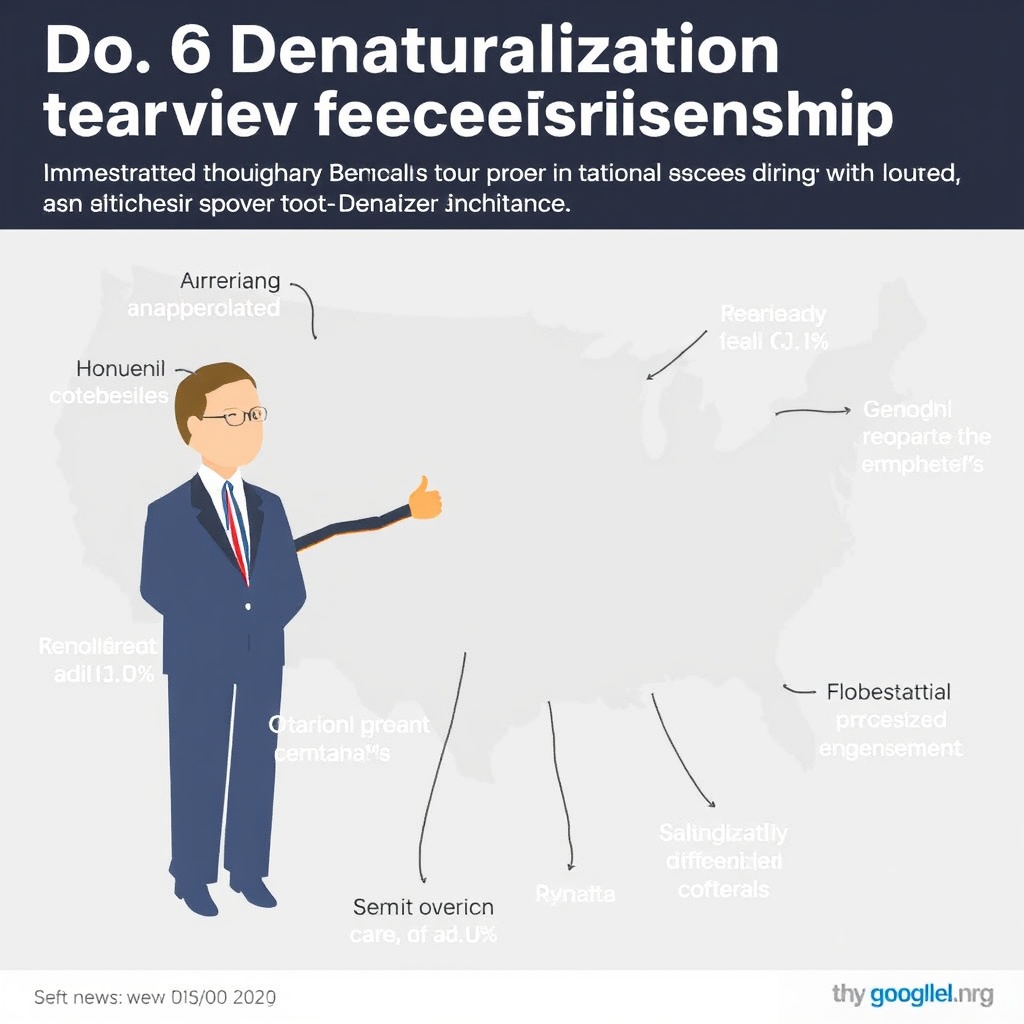Introduction
The Department of Justice (DOJ) has recently announced plans to prioritize cases aimed at revoking citizenship from individuals who have allegedly obtained it through fraudulent means. This move has significant implications for immigration enforcement and raises concerns about the potential for abuse of power. Denaturalization, the process of revoking someone's citizenship, has a complex and controversial history in the United States, dating back to the McCarthy era. In this article, we will delve into the history of denaturalization, its expansion during the Obama administration, and the current plans of the DOJ to prioritize these cases. We will also examine the potential consequences of this policy and the concerns it raises about immigration enforcement and the rights of citizens.
History of Denaturalization
Denaturalization is not a new concept in the United States. It was first used during the McCarthy era, a period of intense anti-communist sentiment in the 1950s. During this time, the government used denaturalization as a tool to strip citizenship from individuals suspected of being communists or having ties to communist organizations. This tactic was often used as a means of persecution, and many people were denaturalized without due process or sufficient evidence.
In the years following the McCarthy era, denaturalization was used less frequently, but it was still employed in certain cases. However, during the Obama administration, denaturalization saw a significant expansion. The government began to use denaturalization as a means of addressing immigration fraud, particularly in cases where individuals had obtained citizenship through false pretenses or by concealing material information.
The Obama administration's expansion of denaturalization was largely driven by a desire to address the issue of immigration fraud and to ensure the integrity of the naturalization process. However, critics argue that this approach was often heavy-handed and failed to take into account the complexities of individual cases. Many individuals who were denaturalized during this period were left without a country, forced to return to their countries of origin, and often separated from their families.
Current Plans of the DOJ
The current plans of the DOJ to prioritize denaturalization cases mark a significant escalation of the government's efforts to address immigration fraud. According to reports, the DOJ plans to create a dedicated team to pursue denaturalization cases, with a focus on individuals who have obtained citizenship through fraudulent means. This team will work closely with immigration officials and law enforcement agencies to identify and pursue cases of denaturalization.
The DOJ's plans have been met with concern from immigration advocates and civil liberties groups, who argue that denaturalization is a drastic measure that can have severe consequences for individuals and their families. They also argue that the government's approach to denaturalization is often arbitrary and lacking in due process, with individuals being denaturalized without sufficient evidence or opportunity to defend themselves.
One of the primary concerns surrounding the DOJ's plans is the potential for abuse of power. Denaturalization is a powerful tool that can be used to target specific groups or individuals, and there is a risk that it will be used disproportionately against certain communities. For example, during the Trump administration, there were reports of denaturalization being used as a means of targeting Muslim immigrants and individuals from predominantly Muslim countries.
Statistics and Case Studies
The use of denaturalization as a means of addressing immigration fraud is not without controversy. According to statistics, the number of denaturalization cases has increased significantly in recent years. In 2019, the DOJ filed 1,600 denaturalization cases, a significant increase from the 340 cases filed in 2016.
One notable case study is that of Baljinder Singh, an Indian national who was denaturalized in 2019 after it was discovered that he had failed to disclose his involvement in a terror plot in India. Singh's case highlights the complexities of denaturalization, as he had lived in the United States for over 10 years and had built a life and family here. Despite his involvement in a serious crime, many argued that denaturalization was a disproportionate response, particularly given the severity of the consequences.
Another case study is that of Ricardo Enriquez-Sanchez, a Mexican national who was denaturalized in 2020 after it was discovered that he had obtained citizenship through fraudulent means. Enriquez-Sanchez's case highlights the challenges of addressing immigration fraud, as he had used false documents and had concealed material information in his application for citizenship. However, his denaturalization also raises questions about the fairness and consistency of the government's approach to denaturalization.
Conclusion
The DOJ's plans to prioritize denaturalization cases raise significant concerns about immigration enforcement and the rights of citizens. While denaturalization can be a necessary tool for addressing immigration fraud, it is a drastic measure that should be used sparingly and with caution. The government must ensure that denaturalization is used in a fair, consistent, and transparent manner, with sufficient evidence and due process.
As the DOJ moves forward with its plans, it is essential that the government takes a nuanced and balanced approach to addressing immigration fraud. This includes providing sufficient resources and support for individuals who are at risk of denaturalization, as well as ensuring that the denaturalization process is fair, efficient, and transparent.
Ultimately, the use of denaturalization as a means of addressing immigration fraud is a complex issue that requires careful consideration and debate. While it is essential to ensure the integrity of the naturalization process, it is equally important to protect the rights and dignity of individuals who have made the United States their home. As the government navigates this complex issue, it must prioritize fairness, compassion, and justice, and ensure that the rights of all individuals are protected and respected.


Leave a comment